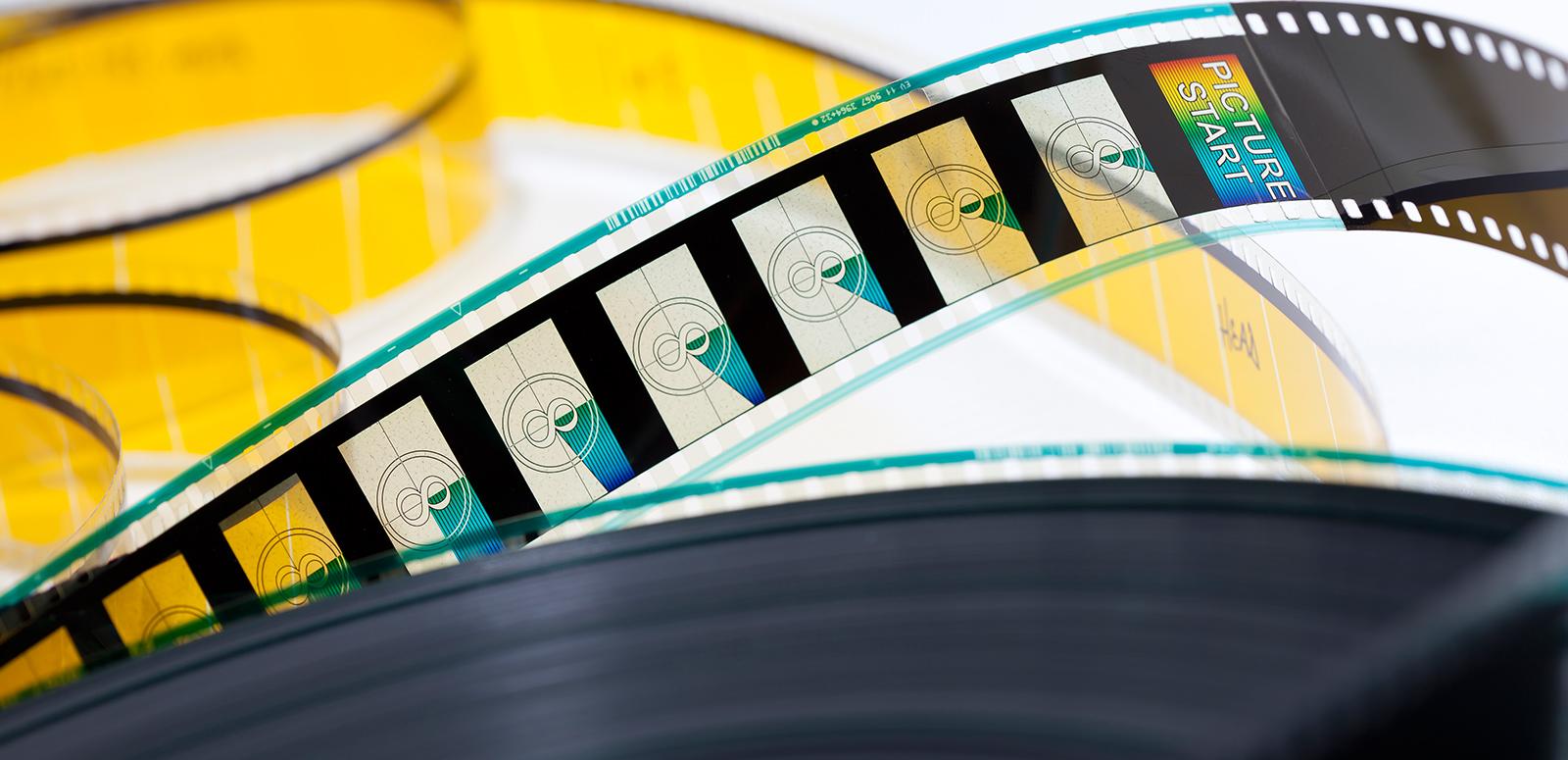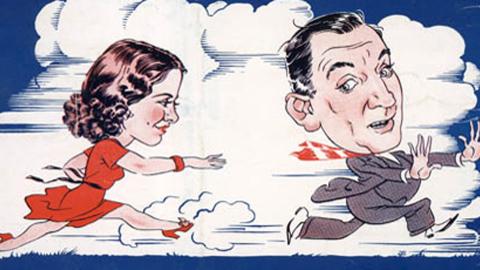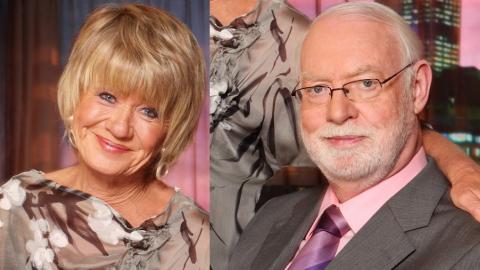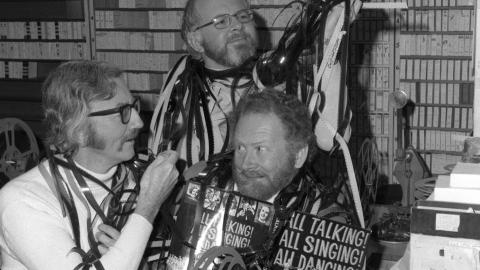

Happy 100th, Mr Hinde!
Many cinema fans would be familiar with the work of film critic John Hinde, who worked in radio and television at the ABC for more than 50 years. He would have turned 100 today.
Hinde was a film lover from an early age; he used to go to films when he played hooky at school – back when it only cost sixpence to get into a film. His career, however, began as a print journalist in Parramatta. He was one of the ABC’s first war correspondents; one of his first reports was about the retrieval of the Japanese submarines after their attack on Sydney Harbour in May 1942. Throughout the war, Hinde reported on the American action in the Pacific, following the movements of the American General and military leader, Douglas Macarthur. A television pioneer, Hinde became one of the first news bulletin writers in Australia.
Hinde almost fell into his career as a film critic at the ABC. When critic Frank Legg was killed in a car accident, an ABC staffer asked Hinde if he knew anyone who would be interested in the job. According to his 2003 oral history for the NFSA, Hinde replied: ‘Well, I don’t know why you should have any trouble. It’s a marvellous job, I’d do it for nothing.’
Luckily for Hinde, the ABC decided to pay him 20 pounds a week for reviewing the four or five films which were screening locally, doing the show live. Little did Hinde know his stint would be ongoing and long lasting; appearing after ABC Radio’s Monday night 7pm news, he continued to review films – initially on radio, later on television – from 1966 until 1992.
Hinde always got a huge response from his audience: ‘It was quite interesting. If I went up the country anywhere … I mean I went to Bourke once for a film preview of an Australian film, and everyone knew me there.’
In 1983, Hinde added to his ABC Radio work by reviewing films for ABC Television. The new format offered Hinde great opportunities: ‘I could take a critical point or a good point or an interesting point in a film and talk about that and then switch to a cut which would probably be about it.’ For the show Hinde would give one in-depth review of a film, and then show Hinde’s Top 5, his pick of the best films in current local release.
He believed the popularity of his program was due to his own unique style of reviewing: ‘It was partly because I did talk about film very firmly and directly at times, but I didn’t just talk about films like they do now. What I mean is I didn’t talk about specific films. I used to expand into things.’ Hinde was interested in exploring a film’s particular historical, political and geographical contexts in his reviews. Listening or watching Hinde’s reviews, you are reminded of the depth and seriousness of his ideas, the simple clear language he used for his audience, and the roguish humour and wit of his delivery.
In 1979-1980, Hinde created the series Other People’s Pictures for ABC Radio. The shows were a result of Hinde’s visit to the 1979 Cannes Film Festival, where he noticed the warm reception given to the new wave of Australian films. At the time there was a lot of ferment in the Australian film industry about the potential and pitfalls facing the development of a truly Australian national cinema. For the program Hinde travelled the world exploring the particular histories and challenges of world cinema region by region, looking at what factors allowed for the creation of a national film culture. A book of the series was also produced, which provides a wonderful snapshot of the world’s cinema industries at the time.
Many people would remember Hinde appearing on ABC screens late at night to introduce their collection of 750 Rank films. This was for many Australian film fans a wonderful introduction to some of the classics of cinema, and was one of my own favourite programs – I could even convince my parents to let me stay up late and see them. Hinde would create curated seasons out of the varied collection, focusing on one director, or star, or a particular style of film; or showing a series of films which explored similar techniques, themes and issues. His introductions for these films are still treasured by fans, with several turning up on YouTube in recent years.
Hinde also endeared himself to his younger audience through his engaging and comedic appearances with Lisbeth Gore on the ABC’s variety shows Live and Sweaty and Elle McFeast, and on the youth program Blah Blah Blah. He narrated several films, including The Queen Goes West, a 1988 documentary chronicling Queen Elizabeth II’s visit to Longreach, Queensland. His particular fondness for sciencie fiction saw him collaborating in independent projects such as the paranoia comedy Dawn of the D.M.F’s (1999), a subversive Melbourne underground sci-fi feature made on Super8. He also had cameos in films including Dead to the World (1991).
Hinde was made a Member of the Order of Australia in 2002, for his services to the film and media industry. He finally retired from the ABC in 1999, at the age of 89, and passed away on July 5, 2006.
The National Film and Sound Archive has many items in its collection related to the career and work of John Hinde including photographs, scripts of his programs, interviews with film personalities, and oral histories about his own career.
Happy 100th birthday, Mr Hinde!
The National Film and Sound Archive of Australia acknowledges Australia’s Aboriginal and Torres Strait Islander peoples as the Traditional Custodians of the land on which we work and live and gives respect to their Elders both past and present.


